
The PILLARS Symposium:
Preparation, Information Literacy, Libraries, Academic Resources,
and 21st Century Skills for Transitioning from Secondary School to College
This year’s topic: Accessibility in Education
with Keynote Speaker Judith Heumann
Welcome to PILLARS 2022!
On July 26, 1990, the Americans with Disabilities Act, or ADA, was signed into law. Since then, July has unofficially been known as Disability Pride Month. While we did not realize that coincidence when we first started planning this symposium, it is fitting that we have gathered a group of speakers who are shining a light on the work that still needs to happen in the name of equitable education for people of all abilities.
Today, we will have two tracks of live presentations and we will culminate with a live moderated Q&A session with our featured speaker, Judy Heumann. You can access the program here to decide what program you wish to attend and are welcome to switch between tracks at any time. The programs will all be presented live via Zoom webinar, and only the presenters and hosts will have microphones and cameras enabled. You can use the chat feature to engage with the presenters and other attendees, and the Q&A feature to ask questions.
The sessions will be recorded and posted online in the next few days. Registrants also have access to two pre-recorded sessions that you are welcome to watch at any time. We will post them online in perpetuity along with the live recordings from this symposium.
CE certificates and CTLE credit will be available for those who attend the live session, but not for those who watch the recordings. Please check the chat box for a link to the certificate request form.
We on the planning committee are excited to bring you content about creating an environment for students with disabilities to thrive. The presentations you are about to see address some issues but do not by any means represent all the problems or solutions in this space. We are doing our best to present a conference that is inclusive by providing sign language interpretation, CART transcription, and by asking presenters to use verbal descriptions of visual materials whenever possible. That being said, we are constantly learning about best practices for accessible virtual conferences. If there is any aspect of the conference that could be more helpful for you, please let us know by emailing us at pillars@elsn.org.
Land Acknowledgement:
We would like to begin this symposium by acknowledging that we all work and live on the traditional territories of Indigenous Peoples. Take a moment to explore the map, identify the land you are on, languages spoken, and treaties that affect the area.
We also acknowledge that we are using equipment and high-speed internet, not available in many Indigenous communities. These technologies leave carbon footprints, contributing to changing climates that disproportionately affect Indigenous people worldwide. To that end, we can support the 2021 National Tribal Broadband Strategy & the Center for Native Peoples and the Environment.
Additional suggested places to donate related to this Symposium include the American Indian College Fund, The National Indian Education Association and the American Indian Library Association.
Resources: Adrienne Wong, Debbie Reese, Loriene Roy
Symposium Program
July 13, 2022
During each hour there will be two sessions happening simultaneously, with the exception of 2 p.m. when we will hear from our keynote speaker.
***All sessions will feature sign language interpretation and will have a CART service for closed captions.***
10 a.m. - Enhancing Accessibility: Five Strategies to Apply Tomorrow
Session Description:
This presentation explores five specific suggestions to deliver relevant, accessible, and inclusive instruction. These recommendations align with our principles of virtual instruction: approachability and inclusivity, responsiveness, reflection, collaboration, and curiosity.
In this talk, we will share five tried and true suggestions for delivering accessible and inclusive library instruction that is 100% virtual! We have honed our virtual instruction chops at Strayer University Library for many years and want to share our principles of virtual delivery. Our principles include approachability and inclusivity, responsiveness, reflection, collaboration, and curiosity. We hope that attendees leave with reinvigorated ideas of how to lead virtual sessions which engage all patrons.
About the Presenters:
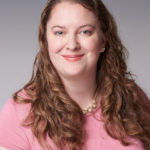 Mary A. Snyder is the University Librarian at Strayer University where she has reinvented the library to offer an online-first approach to services and collections. She is focused on providing a student experience that is friendly, welcoming, and motivating. Mary has an M.L.S. from University of Maryland and is a proud member of their inaugural 100% virtual cohort of library students. Prior to higher education, she worked in museums, archives, and historical societies. In her personal life, Mary and her family are training Samwise, their German Shepherd / Husky mix puppy.
Mary A. Snyder is the University Librarian at Strayer University where she has reinvented the library to offer an online-first approach to services and collections. She is focused on providing a student experience that is friendly, welcoming, and motivating. Mary has an M.L.S. from University of Maryland and is a proud member of their inaugural 100% virtual cohort of library students. Prior to higher education, she worked in museums, archives, and historical societies. In her personal life, Mary and her family are training Samwise, their German Shepherd / Husky mix puppy.
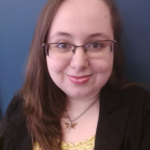 Amber Eakin is the Instructional Librarian for Strayer University. She reinvigorated the library’s 100% virtual instruction strategy with inspiration from Malcolm’s assumptions of andragogy and Grow’s Staged Self-Directed Learning. After completing her Master of Science in Library Science in 2011, she earned a Master of Education in Adult Education and Development in 2018. Currently, Amber is working toward her Doctor of Education in Performance Improvement Leadership. She and her husband live in wild and wonderful West Virginia with their menagerie of pets.
Amber Eakin is the Instructional Librarian for Strayer University. She reinvigorated the library’s 100% virtual instruction strategy with inspiration from Malcolm’s assumptions of andragogy and Grow’s Staged Self-Directed Learning. After completing her Master of Science in Library Science in 2011, she earned a Master of Education in Adult Education and Development in 2018. Currently, Amber is working toward her Doctor of Education in Performance Improvement Leadership. She and her husband live in wild and wonderful West Virginia with their menagerie of pets.
11 a.m. - Designing Digital-Age Learning Ecosystems for ELLs
Session Description:
Discover how to support English Learners by integrating technology in meaningful ways. Use the DATELs framework to increase student engagement and create more equitable learning environments for all students.
Library Media Specialists have a unique role to play in designing learning ecosystems that prepare students for the digital-age we live in. Learn how the Digital-Age Teaching for English Learners framework (DATELs) provides equitable access to engaging learning experiences and how library media specialists have a unique role to play in supporting academic achievement for English Language Learners (ELLs).
The DATELs Framework (Parris et al, 2017, Rubin et al, 2022) outlines the specific elements that must be addressed to provide English Learners with a dynamic, technology-rich learning environment. The framework is designed to provide equitable access to contextually rich, authentic language practice while promoting 21st century literacy skills. It is based on research-informed and evidence-based technology integration models and instructional strategies, including the SAMR model, created by R. Puentedura (as cited in Boll, 2015), the Flipped Learning model, (Bergman & Sams, 2012), the development of advanced literacy skills (Lesaux et al, 2016) and the Culturally Responsive and Sustaining Education Framework (NYSED 2019).
DATELs engages students in synchronous and asynchronous learning opportunities that offer flexible access to deeper academic content, while also developing the language domains of listening, speaking, reading, writing, viewing, and visually representing. The development of multiliteracies, the use of multimodalities, and the intentional design of digital-age learning ecosystems within schools and classrooms will be explored in this session.
This presentation will include sample lesson ideas, tips for fostering collaboration with colleagues, vignettes from educators incorporating technology in creative ways, and targeted questions to facilitate a discussion on best practices. Strategies for in-person, remote, and hybrid instructional models will be shared, including the SOFLA® model (Marshall & Kotska, 2020).
About the Presenter:
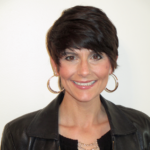 Heather Rubin is an Administrative Coordinator for the NYSED L.I. RBERN at Eastern Suffolk BOCES. She has over 25 years supporting academic achievement and equity for English Language Learners as a teacher, administrator, presenter, and author. Her book “Digital-Age Teaching for English Learners 2ed.”, was published in January 2022, with co-authors Andrea Honigsfeld and Lisa Estrada.
Heather Rubin is an Administrative Coordinator for the NYSED L.I. RBERN at Eastern Suffolk BOCES. She has over 25 years supporting academic achievement and equity for English Language Learners as a teacher, administrator, presenter, and author. Her book “Digital-Age Teaching for English Learners 2ed.”, was published in January 2022, with co-authors Andrea Honigsfeld and Lisa Estrada.
1 p.m. - Helping Undergraduate English Language Learners Through Information Literacy Obstacles
Session Description:
At the University at Buffalo, education librarians implement Universal Design for Learning (UDL) concepts and social constructivism to provide approachable and accessible information literacy instruction to English Language Learners.
Since 2016, the Education Services Team in the University at Buffalo (UB) Libraries have partnered with the English Language Institute (ELI) with the goal of delivering information literacy instruction (IL). Most of these students are both international and English Language Learners (ELLs). In addition to hurdles involving language, they have gaps in knowledge that need to be approached in different ways. The librarians have always focused on finding dynamic ways to make information literacy approachable, accessible, and meaningful. To achieve this, the Ed Services team has embraced Universal Design for Learning (UDL) concepts to implement multimodal delivery of content along with utilizing social constructivist teaching practices.
For ELI students, IL concepts are structured in a 10-week credit bearing lab attached to their ENG105 class. Because students thrive with structure, the librarians provide a “Group Research Starter Pack” with translatable resources regarding an assigned research topic (ex. TED Talks, database articles). Students use their starter pack to obtain background information about their research topic. Throughout the semester, groups work toward a final deliverable in the form of a multimodal presentation. To bolster student engagement, librarians create videos and documents that supplement the class lectures. In addition, gamification and hands on activities are employed, allowing instructors to do formative assessments in real time and modify lessons as needed.
ELLs benefit from enhanced attention to detail alongside increased patience from the instructor to be successful. Over the last six years, the librarians have obtained valuable takeaways and qualitative feedback that continue to influence the reiteration of course content. In this session, the presenters will detail the various ways they craft their instruction to be more accessible for students, combining UDL strategies, social constructivism, and the ACRL Framework. Participants will identify high impact/low effort tasks for improving accessibility based on their own learning environments.
About the Presenters:
 Bryan J. Sajecki received his MS in Library and Information Science from SUNY University at Buffalo in 2012 with a focus on school librarianship and education. In 2016 he was hired by the Education Services Department of the University at Buffalo Libraries and is currently a Student Support and Engagement Librarian there. He writes and presents on strategies for making Information Literacy instruction more accessible for undergraduates, specifically with the use of social constructivism, Universal Design for Learning (UDL), and dejargoning library vernacular to bridge gaps of information from high school to college. His research interests include outreach initiatives to underserved student populations on campus and the impact of positive librarian relationship building on student retention and academic success.
Bryan J. Sajecki received his MS in Library and Information Science from SUNY University at Buffalo in 2012 with a focus on school librarianship and education. In 2016 he was hired by the Education Services Department of the University at Buffalo Libraries and is currently a Student Support and Engagement Librarian there. He writes and presents on strategies for making Information Literacy instruction more accessible for undergraduates, specifically with the use of social constructivism, Universal Design for Learning (UDL), and dejargoning library vernacular to bridge gaps of information from high school to college. His research interests include outreach initiatives to underserved student populations on campus and the impact of positive librarian relationship building on student retention and academic success.
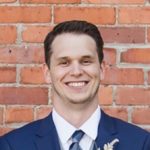 Keith Nichols is an undergraduate education librarian who works primarily with first- and second-year students at the University at Buffalo (UB). He received his MLS from UB in 2012 and an MPH from the University of Georgia in 2017. His main research interests revolve around understanding how information literacy relates to student retention and achievement in the undergraduate population and how undergraduates who receive early intervention with information literacy training fair in the college setting. Mr. Nichols has worked in his current role at UB since 2017 and currently serves on the education services team which handles undergraduate information literacy and learning projects for the UB libraries. As part of the education services team, he has presented on multiple occasions on topics such as Universal Design for Learning (UDL), dejargoning library vernacular, and bridging the gap between high school and college level research skills.
Keith Nichols is an undergraduate education librarian who works primarily with first- and second-year students at the University at Buffalo (UB). He received his MLS from UB in 2012 and an MPH from the University of Georgia in 2017. His main research interests revolve around understanding how information literacy relates to student retention and achievement in the undergraduate population and how undergraduates who receive early intervention with information literacy training fair in the college setting. Mr. Nichols has worked in his current role at UB since 2017 and currently serves on the education services team which handles undergraduate information literacy and learning projects for the UB libraries. As part of the education services team, he has presented on multiple occasions on topics such as Universal Design for Learning (UDL), dejargoning library vernacular, and bridging the gap between high school and college level research skills.
10 a.m. - We're All Individuals!: Differentiation in Library Instruction
Session Description:
This presentation will provide examples of differentiation within school library instruction, with digital resources that can be accessed at any time.
Library instruction is a critical component of the school curriculum, as students learn to navigate their information and research needs within a bewildering array of mis- and dis-information, propaganda, and advertising. Every student has different learning processes, which means that instruction must be delivered in a way that maximizes their engagement and learning. Instruction must therefore be planned in such a way as to allow for those differences in order to lift all student learners. This presentation will provide specific examples of differentiation within middle and high school library instruction, and will feature digital resources that can be accessed at any time. That accessibility also translates into inclusivity, providing an environment that encourages inquiry and satisfies learning needs at any time, any location.
About the Presenter:
 Kathy Starks, MLIS, is a library media specialist at Owego Free Academy in Owego, NY. She earned her bachelor’s degree in English at Carleton College in Northfield, MN, and, after managing the Gothic Bookshop at Duke University, returned to school to earn her master’s degree in Library and Information Science at the University of North Carolina at Greensboro. Kathy has taught in such diverse geographical areas as North Carolina, Georgia, and now New York, where she develops original collaborative lesson plans, presents on educational technology and best practices at local, state, and national conferences, and shares her love of reading with students from Kindergarten to 12th grade. Nearly two decades after starting her library career, Kathy continues to find new appreciation for her profession, her students in the Owego Apalachin Central School District in Owego, NY, and her teaching colleagues.
Kathy Starks, MLIS, is a library media specialist at Owego Free Academy in Owego, NY. She earned her bachelor’s degree in English at Carleton College in Northfield, MN, and, after managing the Gothic Bookshop at Duke University, returned to school to earn her master’s degree in Library and Information Science at the University of North Carolina at Greensboro. Kathy has taught in such diverse geographical areas as North Carolina, Georgia, and now New York, where she develops original collaborative lesson plans, presents on educational technology and best practices at local, state, and national conferences, and shares her love of reading with students from Kindergarten to 12th grade. Nearly two decades after starting her library career, Kathy continues to find new appreciation for her profession, her students in the Owego Apalachin Central School District in Owego, NY, and her teaching colleagues.
11 a.m. - Making LibGuides More Accessible Through a Universal Design Framework
Session Description:
Join the Accessibility & Accommodations Librarian from New York University (NYU) Libraries for a presentation on enhancing the accessibility of your LibGuides.
In order to support building a culture of accessibility at NYU Libraries, the User Experience Team at NYU Libraries managed a project to remediate the suite of LibGuides created across NYU Libraries for improved accessibility. The remediation was conducted in response to an agreement that NYU has made with the Departments of Justice and Education, but the project also coincided with an organizational-wide effort to prioritize inclusion, diversity, belonging, equity, and accessibility into all the work that takes place in the Libraries. This project resulted in providing students and other community members with a more welcoming, accessible, and inclusive experience in using the Libraries’ Research Guides.
The Accessibility & Accommodations Librarian, a member of the UX Team at NYU Libraries, will provide an overview of the project and how it supported the accessibility remediation to maximize the experience for students. The talk will identify key areas we focused on to enhance the content delivered within the LibGuides system for accessibility and will offer suggestions for replicability at your own organization. Areas of focus for the remediation include cognitive load; page layout for logical navigation; style including font, size, and color; contextual links; using lists; providing multiple means for expressing and representing information (video, text, audio). Resources that support the project will be shared for further use. Talk will conclude with a summary of how this project made the Libraries’ Research Guides more welcoming, accessible, and inclusive for students.
About the Presenter:
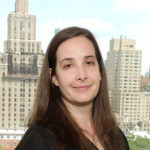 Lauren Kehoe is the Accessibility & Accommodations Librarian at New York University Libraries. She has held this position for two years, although she’s been at NYU for four. In this role she advocates for more accessible facilities, services, and resources within NYU’s Division of Libraries. She accomplishes this through direct support of students with disabilities, advocacy, collaboration within and without the Libraries, and professional development support to her colleagues in the Libraries and University. Previously, Lauren served as the Undergraduate Instruction & Outreach Librarian and the Liaison to Students with Disabilities at NYU Libraries. She graduated from NYU with a BA in Dramatic Literature & Cinema Studies and received her MLIS from Pratt Institute and her MA in Digital Humanities from the City University of New York Graduate Center.
Lauren Kehoe is the Accessibility & Accommodations Librarian at New York University Libraries. She has held this position for two years, although she’s been at NYU for four. In this role she advocates for more accessible facilities, services, and resources within NYU’s Division of Libraries. She accomplishes this through direct support of students with disabilities, advocacy, collaboration within and without the Libraries, and professional development support to her colleagues in the Libraries and University. Previously, Lauren served as the Undergraduate Instruction & Outreach Librarian and the Liaison to Students with Disabilities at NYU Libraries. She graduated from NYU with a BA in Dramatic Literature & Cinema Studies and received her MLIS from Pratt Institute and her MA in Digital Humanities from the City University of New York Graduate Center.
1 p.m. - Bridging the Gap
Session Description:
The New York State Talking Book and Braille Library (NYS TBBL) is a free service for residents and institutions of the 55 counties in upstate New York who have a print, visual and or a physical disability. NYS TBBL services include free circulation of audio and braille materials through the US Postal Service, access to a digital talking book player. equipment, accessories, and the ability to instantly download audio and ebraille titles through a program called Braille and Audio Reading Download (BARD).
This is an overview of the NYS TBBL that provides information about how your students may qualify for service. Learn more about the resources available through NYS TBBL and how the library can benefit your students.
About the Presenter:
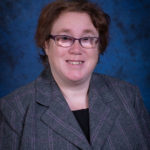 Shawn Lemieux, is director of the NYS Talking Book and Braille Library. Working her way up from an entry level position, she has been working in libraries for the Blind and Print Disabled for two decades. She works with people of all ages who have a visual, physical, or print/reading disability. Shawn and her team are honored to assist people continue their reading journey by providing free accessible resources. In her spare time Shawn likes to learn, travel, and be outdoors.
Shawn Lemieux, is director of the NYS Talking Book and Braille Library. Working her way up from an entry level position, she has been working in libraries for the Blind and Print Disabled for two decades. She works with people of all ages who have a visual, physical, or print/reading disability. Shawn and her team are honored to assist people continue their reading journey by providing free accessible resources. In her spare time Shawn likes to learn, travel, and be outdoors.
2 p.m. – Keynote: A Conversation and Q & A with Judith Heumann
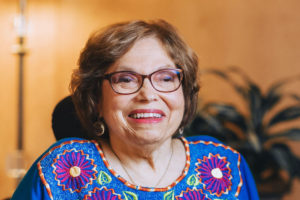 Caitlin Kenney, Engagement & Education Services Coordinator from Western NY Library Resources Council, will be moderating this session with Judy Heumann to ask about what lessons we can learn from her years of activism for disability rights. The conversation will focus on advocating for resources for students as they enter college, and we will take questions from the live audience. Registrants will also have an option to ask a question when they sign up for the symposium.
Caitlin Kenney, Engagement & Education Services Coordinator from Western NY Library Resources Council, will be moderating this session with Judy Heumann to ask about what lessons we can learn from her years of activism for disability rights. The conversation will focus on advocating for resources for students as they enter college, and we will take questions from the live audience. Registrants will also have an option to ask a question when they sign up for the symposium.
Judy Heumann is a lifelong advocate for the rights of disabled people. She has been instrumental in the development and implementation of legislation, such as Section 504, the Individuals with Education Act, the Americans with Disabilities Act, the Rehabilitation Act, and the UN Convention on the Rights of Persons with Disabilities.
Her memoir,“Being Heumann: An Unrepentant Memoir of a Disability Rights Activist,” co-authored by Kristen Joiner, was published in 2020. She is also featured in the Oscar-nominated documentary, Crip Camp: A Disability Revolution, directed by James LeBrecht and Nicole Newnham. Judy produces a podcast called The Heumann Perspective, which features a variety of members from the disability community.
Judy serves on a number of non-profit boards, including the American Association of People with Disabilities, the Disability Rights Education and Defense Fund, Humanity and Inclusion, Human Rights Watch, United States International Council on Disability, and Save the Children. She has 20 years of non-profit experience working with various disability organizations, including being a founding member of the a founding member of the Berkeley Center for Independent Living. Prior to starting the Judith Heumann LLC, she served in the Clinton Administration and Obama administrations.
Watch our two pre-recorded sessions:
Captioning Your Videos for Accessibility
Session Description:
Learn how to edit the auto-generated captions on your YouTube videos for improved accuracy and accessibility.
YouTube provides auto-generated closed captions for videos. But because they are not always accurate, it is best to edit them for improved accessibility. This presentation will cover: how to edit captions for your videos, best practices for formatting them, and how providing captions is beneficial for all users.
About the Presenter:
 Jaclyn McKewan is the Electronic Resources Librarian at Niagara University, where she has worked since 2018. She has previously presented at the NYLA Annual Conference, The TEDxBuffalo conference, and other local/regional events.
Jaclyn McKewan is the Electronic Resources Librarian at Niagara University, where she has worked since 2018. She has previously presented at the NYLA Annual Conference, The TEDxBuffalo conference, and other local/regional events.
View the Slide Deck & Other Materials
Citation: Preparing Secondary Students for College Level Research
Session Description:
Why is citation such a challenge for all? Helpful hints and examples for high school students in transition to college will be discussed.
Citation can be a challenge for all students. Guiding secondary students on the citation process will provide an opportunity for all to learn the how-tos of why documentation is a significant part of understanding academic research. Subject disciplines, examples of journal databases, and helpful hints will be discussed.
About the Presenter:
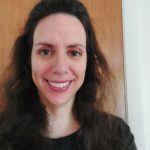 Marisa Gitto is a Senior Reference Librarian at the New York State Library. She received her MLIS from Pratt Institute. Previously, Marisa was Director of Library Services at Maria College and the Curriculum Library Director at the College of Saint Rose where she helped future teachers obtain resources for lessons.
Marisa Gitto is a Senior Reference Librarian at the New York State Library. She received her MLIS from Pratt Institute. Previously, Marisa was Director of Library Services at Maria College and the Curriculum Library Director at the College of Saint Rose where she helped future teachers obtain resources for lessons.
Code of Conduct
The PILLARS Symposium:
- Supports an open exchange of ideas within a safe and respectful environment, free from all forms of harassment, including those based on gender identity and expression, sexual orientation, disability, physical appearance, health status, race, age, class, citizenship, veteran status, religion, or beliefs.
- Offers a space of learning for our community by welcoming and respecting individuals from all professions and with all levels of education and experience.
The following types of harassment are prohibited and may include, but are not limited to:
- Abusive, derogatory, or sexual verbal comments, slurs, epithets, and/or discriminatory images in public and online spaces;
- Threats or acts of violence;
- Intimidation or stalking;
- Harassing photography or recording;
- Purposeful or repeated acts of misgendering; and/or,
- Sustained verbal disruption of talks or other events.
Violators of the PILLARS code of conduct will be notified of the violation, removed from the learning space, and barred from attending the remaining PILLARS symposium sessions.
If you believe there has been a violation of the PILLARS code of conduct during a session, alert the facilitating PILLARS planning committee member immediately or contact the committee via the PILLARS email pillars@esln.org.
Frequently Asked Questions
Will attendees be receiving continuing education certificates?
Yes. Attendees will have the option to request continuing education certificates for each individual session.
Will attendees be eligible for Continuing Education and Leader Education (CTLE) credit?
Yes. Attendees will be able to request CTLE credit for each individual session. It will be provided by the Western New York Library Resources Council (WNYLRC). For more information contact Caitlin Kenney at ckenney@wnylrc.org.
Will the symposium be recorded?
Yes! All sessions are being recorded and the recordings will be shared with registrants after the event.
This event is a production of the Empire State Library Network (ESLN).
For more information, please contact the planning committee at pillars@esln.org.
Once again, we’d like to thank our generous sponsors for allowing us to present this event.



